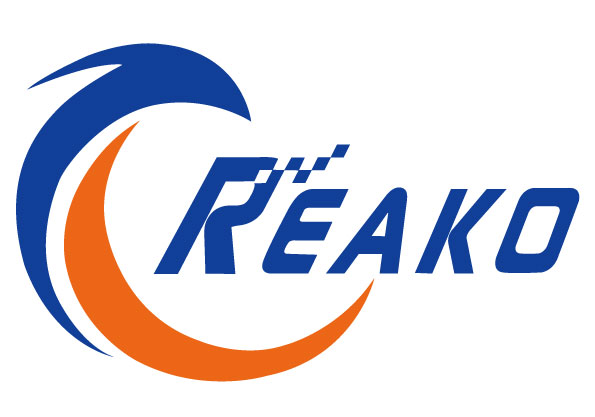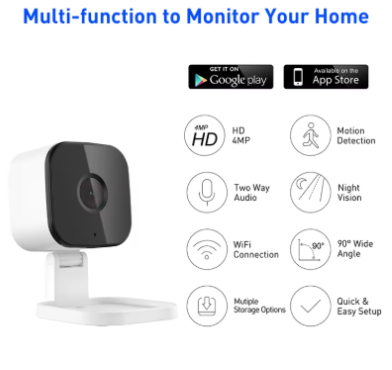What Makes 4G Cameras Ideal for Remote Locations
Core Features That Enable Off-Grid Surveillance
The primary attributes of 4G cameras are perfect for off-grid surveillance, offering solutions where standard power supplies and an internet connection aren't available. The devices are battery powered, thus, overcoming one disadvantage of mechanical devices which require an electrical source of energy, and enabling the devices to operate remotely, such as would be required in areas without electricity. Moreover, they also come with an SD card with built-in storage to support local storage footage, which is essential if active internet connectivity is a no-go. This function is the guarantee of the indispensable surveillance informations, never missing under broken network. And motion detection technology also makes these cameras work longer by using less power and recording only when motion is detected. This energy efficiency enables the cameras to save power, which means they can last longer between recharges and brings a focused surveillance.
4G vs. Wi-Fi Cameras: Why Cellular Connectivity Wins
When you’re taking 4G and Wi-Fi cameras, 4G camera will brings you ultimate benefits of remote monitoring, which put 4G camera above Wi-Fi camera. The 4G cameras biggest advantage is solid, continuous performance in places where Wi-Fi may not serve. This feature, designing for robustness and low latency is particularly good for field and outdoor deployment where Internet connection is unreliable. Real-time monitoring can be carried out remotely from anywhere with cellular network connectivity, which solves the problem that Wi-Fi cameras can only work within limited range due to signal loss or signal interference. A tech study found that 4G networks usually have lower latency than Wi-Fi setups, which for surveillance applications gives you a more responsive live feed and makes sure you can rely on it when it counts. These characteristics make 4G cameras a reliable solution for high-quality monitoring in different remote places even without costly internet devices.
Uninterrupted Monitoring in Areas Without Infrastructure
How 4G Networks Overcome Geographical Limitations
4G-based networks are designed to span huge dimensions, they can provide surveillance in complex geographic areas even in mountains and forests. This widespread coverage enables us to deliver reliable monitoring to where traditional internet providers may have difficulty reaching. By utilizing 4G’s cellular network, you can track the location and view real-time streaming of the camera from restricted areas/completely wireless. 4G networks have been reported to give good Web connections in rural regions and possibilities where the common net solutions may well be lacking or unstable.
Real-Time Alerts in Low-Signal Environments
An important benefit of 4G cameras is the capacity to send alarms instantly with low-signal conditions, making them essential for rapid reactions to security breaches. Those cameras can send alerts in real time on the apps or SMS, meaning that property owners are alerted immediately if anything out of the ordinary occurs. 4G cameras new features New features to 4G cameras will be boosting the signal strength, so that they can be used even more efficiently in environments and conditions where they they couldn't be used before. This is so the cameras work at their best, working properly to send out crucial security alerts.
Enhanced Security Advantages for Isolated Properties
Tamper-Proof Operation Without Local Internet Reliance
One of the strengths of 4G cameras is that they do not require local internet connectivity, so they are less vulnerable to tampering. Because they don’t rely on Wi-Fi, these cameras provide an added measure of security and can’t be easily disabled by an intruder trying to gain access through a property. This makes it a good choice for rural properties, where the need for such a treatment is greater. Indeed, industry insiders suggest such 4G products because they are known for their strong security, which can help give property owners peace of mind when it comes to dependable surveillance.
Encrypted Data Transmission Across Cellular Networks
4G cameras have robust encryption protocols protecting video transmissions making sure even the most sensitive data is safe from prying eyes. Unlike public Wi-Fi, which is far less secure, cellular networks are good for another layer of protection for data that does come from these cameras. 4G wireless data uses stronger encryption than its predecessors, which has been known to minimize the possibility of hacking and other virtual attacks. This high level of security ensures that the data of the data of the images captured by the cameras are kept securely and is only available to authorized persons.
Cost-Effective Solution for Remote Site Management
Eliminating Expensive Infrastructure Installation
By using 4G cameras, you will be able to cut down the project’s infrastructure and deployment costs as 4G camera proves to be an affordable remedy in the remote site monitoring. Unlike traditional systems that would otherwise require costly investments in cabling and Wi-Fi range extenders, 4G cameras these infrastructure is not required. This approach is particularly attractive for organizations handling numerous remote sites, whose savings in this case can be significant. “Industry studies reveal that companies choosing cellular solutions can save up to 30 percent on their cost of initial surveillance deployment, offering significant financial advantages to businesses that want to de-burden their security program.
Scalable Deployment Across Multiple Locations
4G cameras are easier than ever to roll out across multiple sites with no wired infrastructure hassle. This ability to scale is significant, allowing companies to rapidly adapt their security in line with how they operate, decoupling from the burden of a large infrastructure footprint. There are many success stories from startups to large companies that show how flexible and effective a scalable 4G camera solution can be. These solutions allow for easy adaptation to evolving site needs, enabling dynamic security setups that address an ever-changing corporate threat landscape. This degree of deployment flexibility is what makes 4G cameras a preferred choice for business monitoring in multiple remote sites.
Proven Use Cases in Challenging Environments
Wildlife Conservation Monitoring Success Stories
The cameras have been 4G, which means they allow for long-distance monitoring of threatened populations from the species natural environment. These cameras provide real-time data that conservationists can use to develop better management plans without requiring physical access to the site. As these reports appear to confirm, 4G camera systems have significantly enhanced the effectiveness of wildlife protection and research data quality. Environment Conservationists can now monitor and record animal activities, behaviors, and interactions with minimum human impact with low human interference preserved and high data reliability reinforced.
Construction Site Surveillance Without Power Lines
Power outlet also is not an easy spot to find in construction site, so wireless 4G camera is really necessary for on-site monitoring. These cameras allow for easy monitoring of the project and site safety with none of the hassle of a wired install. Success stories A number of case studies demonstrate that 4G cameras are making a difference within the construction industry, with significant reductions in theft undertaken with the support of 4G cameras. With the combination of on-site management and remote monitoring capabilities, site managers are able to manage their site effectively and react immediately in case of issues to keep their assets and people safe.
FAQ
What are the main advantages of 4G cameras in remote locations? The main advantages include uninterrupted access in areas without Wi-Fi, real-time monitoring, reduced installation costs, and enhanced security through encryption and tamper-proof operation.
How do 4G cameras differ from Wi-Fi cameras? 4G cameras use cellular networks for connectivity, offering wider coverage, lower latency, and more reliable performance in remote areas compared to Wi-Fi cameras.
Are 4G cameras cost-effective for businesses? Yes, they reduce the need for expensive infrastructure and can cut initial setup expenses significantly, especially for businesses managing multiple remote sites.
In what environments have 4G cameras proven successful? They have been successful in wildlife conservation for monitoring endangered species and at construction sites where traditional surveillance setups are challenging due to lack of power lines.


